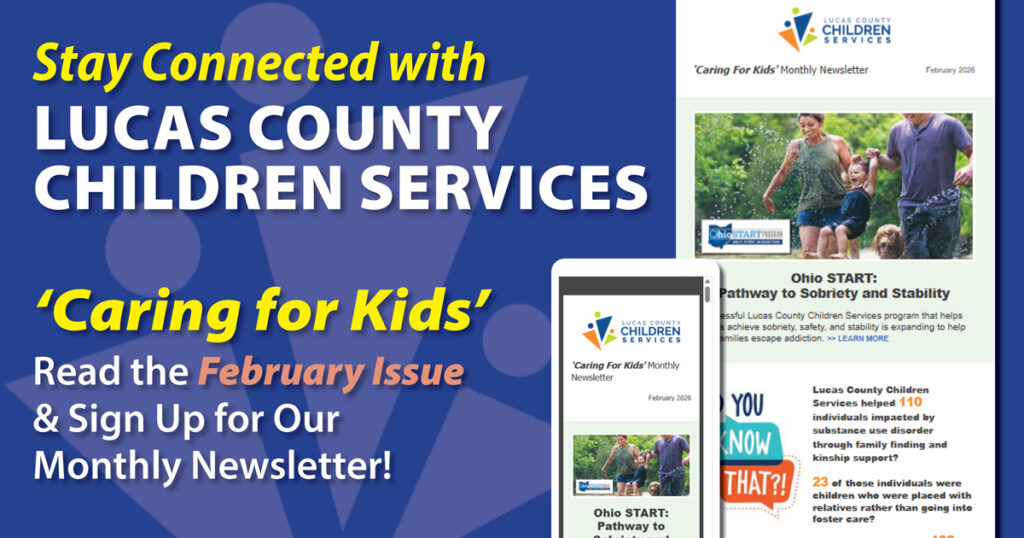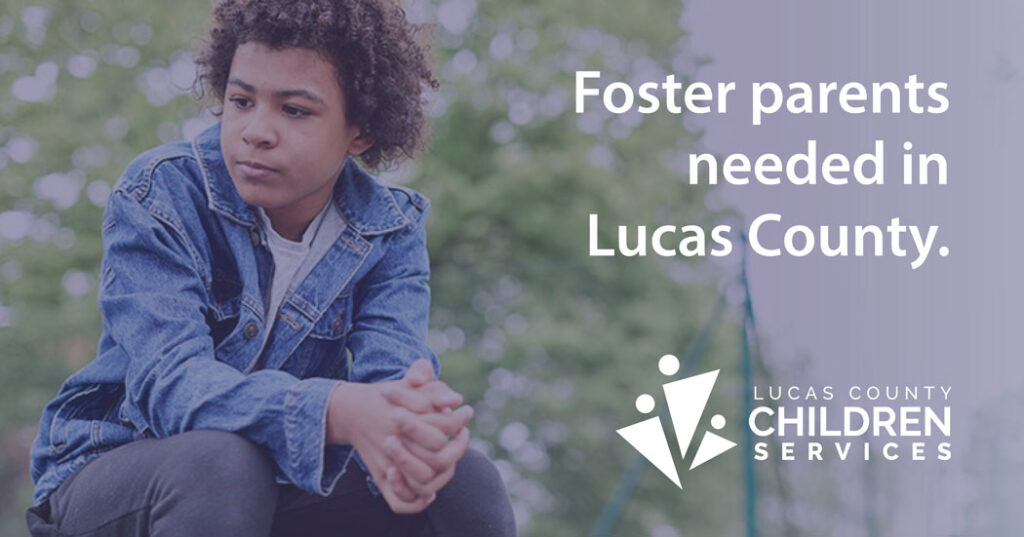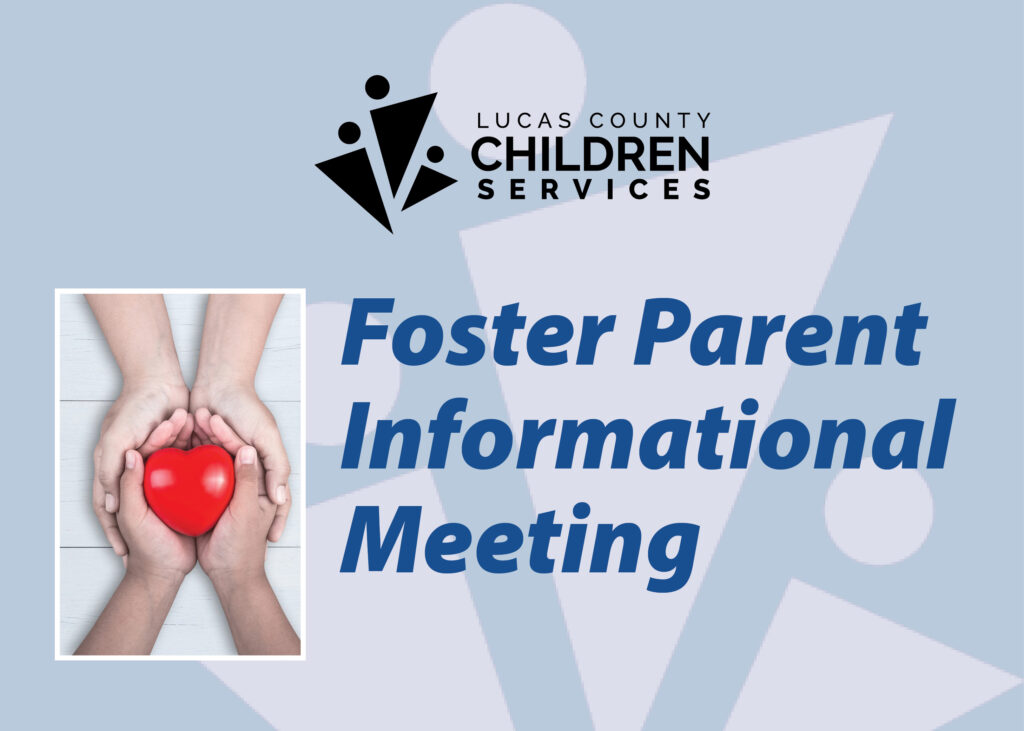Welcome to Lucas County Children Services
Introducing “Caring for Kids” — Our Monthly E-Newsletter for Lucas County
Stay connected with the stories, updates, and resources that support children and families right here in Lucas County. Each month, Caring for Kids brings you timely information and meaningful ways to get involved.
In every issue, you’ll discover:
- News and updates from Lucas County Children Services
- Helpful tools and resources for families and caregivers
- Highlights of community partners making a difference
- Opportunities to participate, volunteer, or show your support
Receive Caring for Kids directly on your phone
or in your inbox—your choice.
 Need Help Navigating Our System?
Need Help Navigating Our System?
We know the child welfare system can feel overwhelming. If you’re having trouble getting services, have a concern, or feel like you’re not being heard—you’re not alone. Call the Family Help Center: 419-213-3833
The Family Help Center is your direct connection to an independent Client Rights Office. This dedicated hotline was created to support parents, caregivers, and families who need help navigating Lucas County Children Services (LCCS). Whether you have a question, a concern, or just need someone to listen—we’re here.
Why This Matters: This new support pathway was created in response to real feedback from parents and caregivers during Community Conversations across Lucas County. One message came through loud and clear:
“We don’t feel like we have anywhere to turn when we need help.” The Family Help Center changes that.
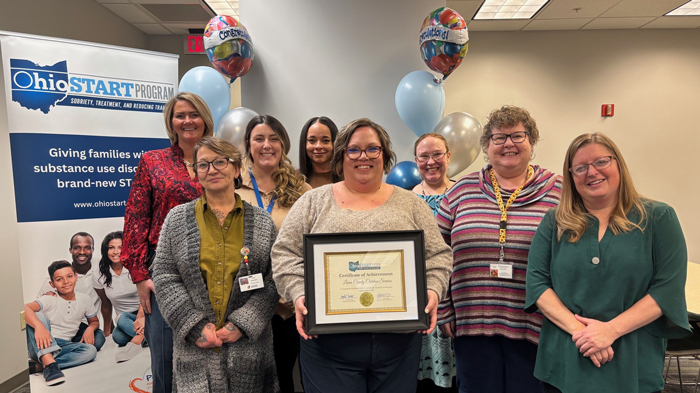 LCCS Achieves Ohio START Certification
LCCS Achieves Ohio START Certification
“Certification is important because it means LCCS is meeting or exceeding the national program’s highest standards and an unwavering commitment to transforming the lives of those in need,” explained LCCS Social Services Director Chanda Beal. “LCCS is extremely proud of the dedicated staff and community partners that are instrumental in this monumental milestone. This puts LCCS among national leaders in the success of this program at the local level.”
To date, LCCS has served 46 families and 88 children through Ohio START. Ohio START began in 2017 as a pilot program to provide recovery services for parents who have substance use disorder and specialized treatment for children who have been impacted by parental drug use. The program has continued to grow since then, expanding to 56 Ohio counties. Administered by the Public Children Services Association of Ohio (PCSAO), Ohio START has supported 2,650 children.
According to the PCSAO, research has shown that mothers who participate in START achieve sobriety at nearly twice the rate of mothers treated without START and that children in families served by START were half as likely to be placed in the custody of children services.
Lucas County Children Services (LCCS) needs YOU—to become a foster parent!
There are hundreds of Lucas County children, who, through no fault of their own, need a safe and loving environment. The numbers of kids requiring foster care continues to grow, while the number of available homes has not.
Tweens and teens may require the mentoring needed to build and maintain a strong foundation for the transition into adulthood. These youth often are looking for a stable and safe environment that provides them the opportunities to achieve the future they envision for themselves.
Sibling groups can better weather the storms of separation from family when a foster home is able to keep them together. Siblings rely on each other heavily, so a larger, loving home can give them the stability and safety they need to thrive in such challenging conditions.
Treatment foster homes are needed to help children living with disabilities or special needs to achieve their full potential. Treatment foster caregivers may have or can learn specialized skills to ensure each child’s physical and emotional well-being needs are met.
LCCS provides the training and support to help you be the best foster parent possible. Please click here to take the first step. If you’ve got questions, we’ve got answers!
Kinship Support Program (KSP)
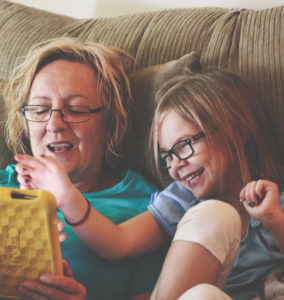
On December 29, 2020, Governor Mike DeWine signed an Executive Order, establishing a Kinship Support Program to assist kinship caregivers of children in Ohio’s child welfare system.
The Governor’s order directs the Ohio Department of Job and Family Services (ODJFS) to pay all eligible kinship caregivers (related and unrelated) a daily stipend for each child in the custody of Lucas County Children Services (LCCS) that is placed in their home as kin. These KSP payments will continue for not more than nine months while caregivers work with LCCS to become licensed as a foster parent. ODJFS may waive certain non-safety-related foster care licensing requirements to help you become licensed. Once licensed, caregivers will receive foster care payments to care for the child as long as he/she remains in the home.
There is no application process to receive KSP payments. To be eligible, the child must be in the temporary, permanent, or legal custody of a public children services agency (PCSA) like LCCS, and be placed in your home by the PCSA as a kinship placement. Currently licensed foster caregivers are not eligible for this program. Find more information, click here.
Join Our Team!
To view the full job description and apply, select the links below.
Click this link https://lucaskids.net/lccs-job-openings/ to view additional open positions.
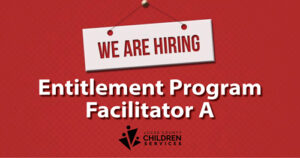
Determines eligibility of all Lucas County children (PCSA & PCPA, private and international adoptions) for State and Federal subsidized adoption programs.
<< Job Description / Application
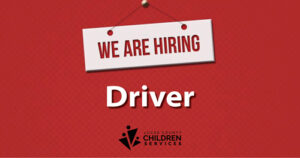
Oversees child visits, including virtual visits, and visitation areas and provide for the physical needs of the children while in the visitation setting.
<< Job Description / Application
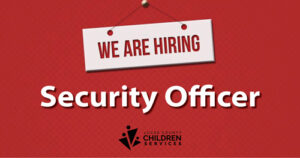
Provides security functions to ensure safety of Lucas County Children Services staff, building and property.
<< Job Description / Application
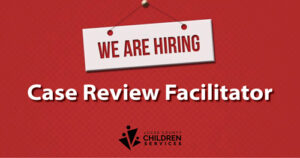
Facilitates Semi-annual Administrative Reviews of children, 90-day case reviews, and multi-disciplinary Family Case Conferences upon request or as otherwise mandated by the Ohio Administrative Code (OAC).
<< Job Description / Application
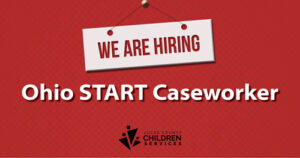 Provides intensive case management services to parent/caregivers by utilizing the Ohio START (Sobriety, Treatment, and Reducing Trauma) intensive, wraparound intervention program while adhering to all aspect of a traditional child welfare worker.
<< Job Description / Application
Provides intensive case management services to parent/caregivers by utilizing the Ohio START (Sobriety, Treatment, and Reducing Trauma) intensive, wraparound intervention program while adhering to all aspect of a traditional child welfare worker.
<< Job Description / Application
Lucas County Children Services (LCCS) needs YOU—to become a foster parent!
2026 Pre-Service Training Schedule
Please visit:
https://lucaskids.net/pre-service-training/
2026 Foster & Adoptive Parents
Preservice Schedule
~ DOWNLOAD PDF ~
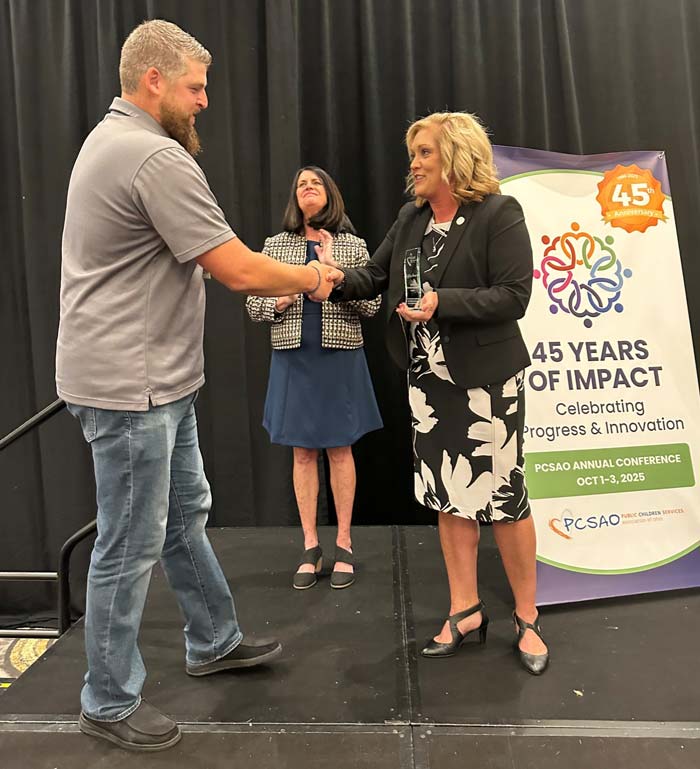
Jeffrey Chesser, LCCS Independent Living Youth Advocate, accepts his honor as Child Protection Support Advocate of the Year from Angela Sausser, PCSAO executive director (center), and Kara Wendte, director of the Ohio Department of Children and Youth (right).
We Respond 24 Hours A Day
Report Child Abuse or Neglect: (419) 213-CARE (2273)
Child safety is Lucas County Children Services’ top priority. Experienced screeners will answer calls about suspected child abuse or neglect 24/7.
>> For More Information
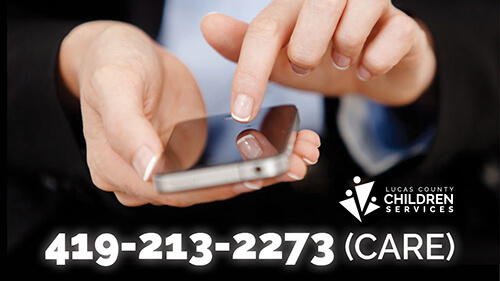
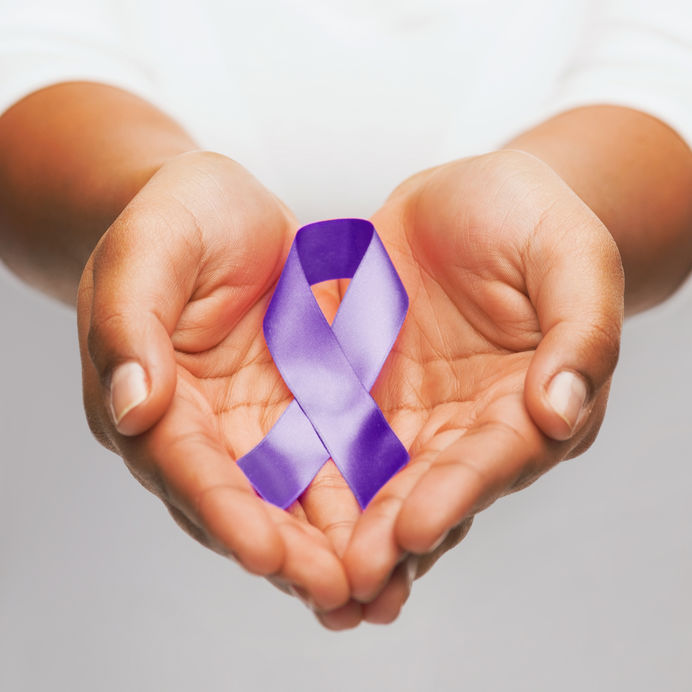
Are you experiencing domestic violence?
There are a number of resources in our community to help you protect yourself and your children, and to help you make a plan to get out.
>> LCCS Community Resource Guide (PDF download)
